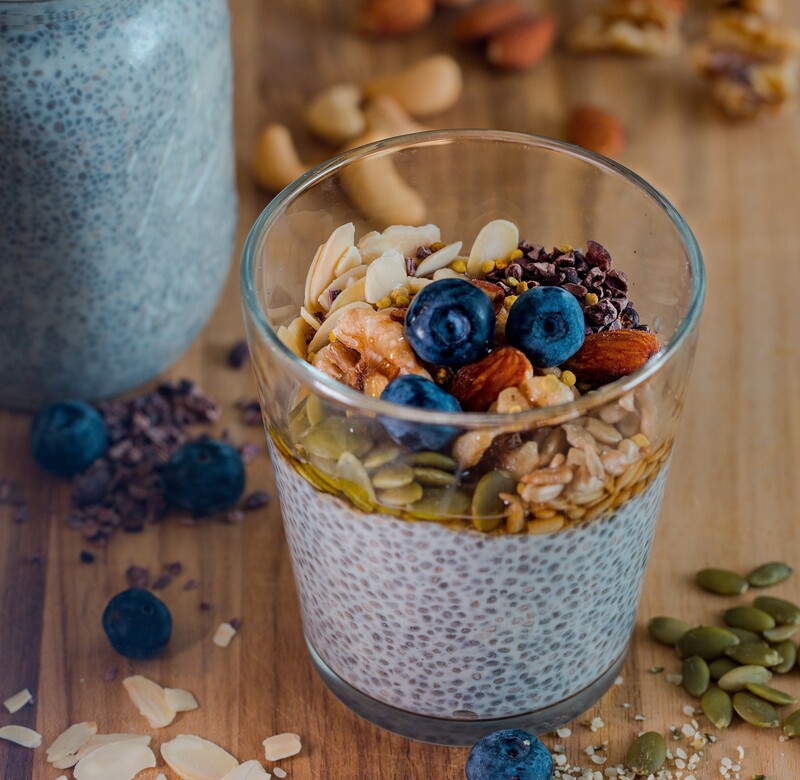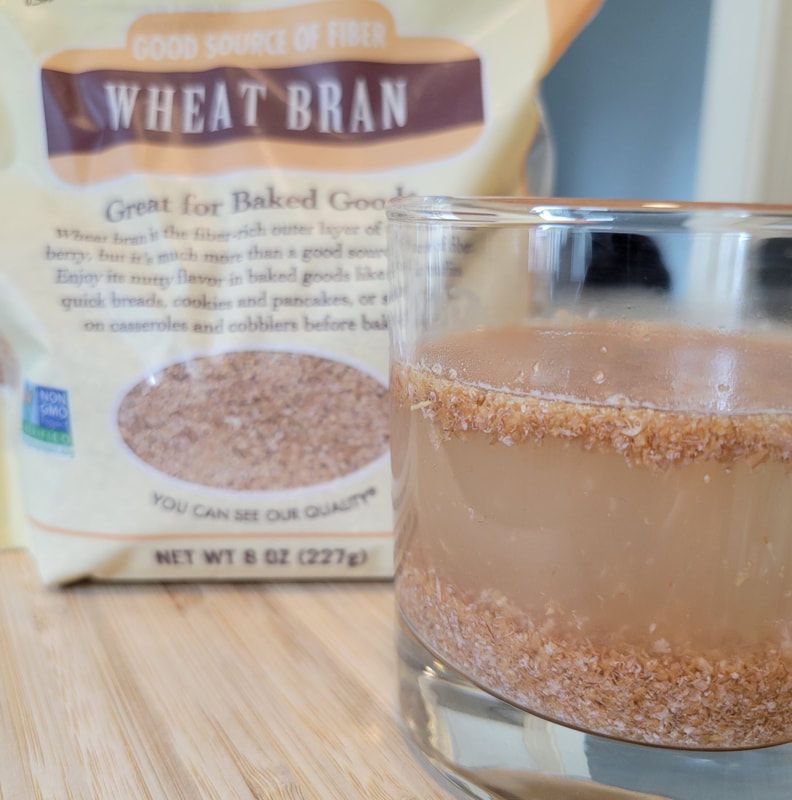|
Dietary fiber is one powerhouse of a nutrient that greatly affects your health. From your gut to your heart to your brain, fiber can have big benefits! Most people don’t consume enough fiber, so they aren’t reaping the benefits! In this post, we explore five life-altering health benefits of fiber. Adding more fiber can be difficult if your diet contains limited fresh foods and many processed foods. However, it’s a lot easier if you start with a few small adjustments or additions. Keep reading below about the different kinds of fiber, their relation to health, and how to reap the rewards! The Different Kinds We need to acknowledge that there are two kinds of fiber: soluble and insoluble. Soluble fiber acts like a sponge and soaks up water to form a gel-like substance, which helps slow digestion. Chia seeds and oatmeal are great examples of soluble fiber. Conversely, insoluble fiber does not absorb water and simply adds bulk to your stool, which can help relieve symptoms of constipation. Wheat bran is an example of insoluble fiber. The advantages of consuming both kinds of fiber greatly outweigh the challenge that it might be to add it to your daily eating habits. All the benefits discussed below come from consuming a combination of both kinds of fiber, so a variety of sources is key! Soluble fiber (chia seeds) versus insoluble fiber (wheat bran). The Benefits Fiber Can Help Us Poop Fiber greatly helps remove bodily waste. We, as humans, don’t digest fiber, and because we don’t digest it, it passes straight through our digestive tract. As stated earlier, soluble fiber absorbs water, helping to soften our stool and making it easier to pass. Insoluble fiber adds bulk to stool, ultimately providing more substance to move through the digestive tract. Combining these two features makes for better bowel movements. Fiber Strengthens Our Immune System A high-fiber diet can support our immune system in its daily efforts to keep us from getting sick. Fiber acts as food for the good bacteria in our gut. When our good gut bacteria are strong, our immune system functions better. Approximately 60% of our immune system is related to our good gut bacteria.1 If we don’t consume enough fiber, we may miss out on over half of our defense system! So remember, increasing our fiber intake lowers our risk of getting sick and increases our ability to fight disease. Fiber Lowers Our Risk for Chronic Disease Risk of getting certain diseases may be influenced by fiber intake. Two such conditions are diabetes and heart disease. But why these two especially? It has to do with how fiber moves through the body. Soluble fiber slows the digestion of foods, and when digestion slows, so does our rise in blood sugar after a meal. Better blood sugar control means lower risk of diabetes. Soluble fiber also plays a role in heart disease. When it forms that sticky, gel-like mass, it grabs onto things like LDL-cholesterol (“bad cholesterol”) and pulls it through our digestive tract and out of our body. This protects the heart by lowering cholesterol and blood pressure. Of course, these are only two examples of how fiber protects against chronic disease! Fiber Can Help to Reduce Inflammation C-reactive protein (CRP) is found in the blood and is recognized as a marker of inflammation. Studies find that individuals who consume higher amounts of fiber have lower levels of CRP and inflammation.2 There are two methods by which this decrease of inflammation may occur. Firstly, increased fiber can help reduce body weight, reducing inflammation. Secondly, when the good bacteria in our gut digest the fiber we consume, they release anti-inflammatory substances, reducing overall inflammation. Although there are multiple ways to reduce inflammation, increasing fiber in the diet may be one of the best. Fiber Supports Brain Health Increased fiber can significantly impact the most vital organ in our body – the brain. The brain and the gut communicate with each other directly. As stated, increased fiber supports the good bacteria in our gut. The strengthened bacteria release a substance that helps reduce blood vessel swelling, including around the brain. One possible outcome of this reduced swelling is decreased risk and rate of dementia.3 Of course, this is just one possible benefit, and increased fiber intake supports overall brain health. What Foods Contain Fiber? There are many fresh, whole foods that contain high amounts of fiber. Including:
Tip: when increasing your fiber intake, it is important to increase water intake to prevent constipation. Overall, to achieve your fiber goals, add a variety of fresh, whole foods.
Those at Sound Dietitians work hard to support you and the community to live healthily! We recently gave a cooking demonstration on high-fiber desserts. That way, when you want to be a little indulgent and have some dessert, you know you’ll give your body some good nutrients too. One of my favorite recipes was an Avocado Lime Pie adapted from Abra’s Kitchen. Check out the recipe and try it – so tasty! Because it can be tough to meet your daily goals, let those at Sound Dietitians help you out. Set up an appointment today with one of our dedicated staff for individualized nutritional therapy. We look forward to seeing you soon! Rick Harrison, Dietetic Intern Rick Harrison is an aspiring Registered Dietitian studying at Bastyr University in Kenmore, Washington. With a background in culinary and pastry arts, Rick hopes to help shape people’s relationship with food by making it more accessible through increased knowledge of cooking and confidence in the kitchen. References: 1. Anderson JW, Baird P, Davis RH, et al. Health benefits of dietary fiber. Nutr Rev. 2009;67(4):188-205. doi:10.1111/j.1753-4887.2009.00189.x 2. Can Increasing Fiber Reduce Inflammation? | Arthritis Foundation. Accessed March 1, 2023. https://www.arthritis.org/health-wellness/healthy-living/nutrition/anti-inflammatory/increasing-fiber 3. Yamagishi K, Maruyama K, Ikeda A, et al. Dietary fiber intake and risk of incident disabling dementia: the Circulatory Risk in Communities Study. Nutr Neurosci. Published online February 6, 2022. doi:10.1080/1028415X.2022.2027592
0 Comments
Leave a Reply. |
SD BlogA place for our consultant Registered Dietitian Nutritionists (RDNs) to share nutrition science, yummy and healthy recipes, tips on seasonal ingredients, and other nutritional musings. Enjoy! Categories
All
Archives
May 2024
|







 RSS Feed
RSS Feed